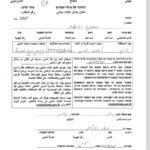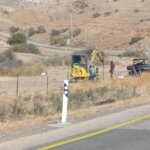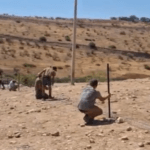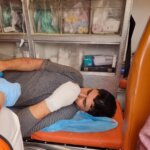Video: Water situation in the Jordan valley (Homsa and Fasayel)
Across the entirety of Area C, families exist in a permanent state of insecurity; without water, electricity or the ability to build homes, schools or clinics. They cannot repair damaged infrastructure, e.g. potholed roads, and house demolitions occur with frightening frequency: one family in Al Jiftlik has had their home destroyed 5 times in the past year. Infractions of the Oslo Accords mean that even buildings constructed prior to 1967 are not safe from the Israeli bulldozers. 27,000 people are living under these conditions in Jordan Valley.
People in Khirbet Humsa live between the Hamra settlement, Hamra checkpoint and an Israeli military base. The land the Palestinians are on is legal and the houses have papers from before 1967. However, Israel does not acknowledge this legality when it usurps the peoples’ rights, destroys houses and prevents access to traditional water sources.
Families must travel to ‘Ein Shibli village (at least 12km from Khirbet Humsa) and go through Al Hamra checkpoint, which, at the soldiers’ discretion, may take hours. Buying water this way costs 16 NIS/m³. Over a monthly period, with large families and animal rearing, this adds ups to 1000 NIS per family. For villages Khirbet Samra, Mak-hul and Al Hadidiya, it costs 20 NIS/ m³, as they must travel to Bardala village, which is 30 km away. Additionally, any trucks found transporting water may be fined at least 600 NIS by the Israeli soldiers.
Khirbet Humsa background
There are 14 families in Khirbet Humsa. There are specifically 24 males, 24 females, 43 children, 15 boys and 18 girls. Then the number of population is 124. Including Khirbet Samra, Mak-hul and Al Hadidiya, there are about 600 people who will benefit from this project – the proposed water cistern will be able to support all of these aforementioned villages; these people are mostly shepherds. Also there are 1240 sheep, 215 chickens and 450 olive trees that people use to provide their rent. They use water for their homes, drinking, watering of sheep and in small subsistence gardens which help to feed the families. The children of these villages are only able to wash once per week and often have soiled clothes because of the notorious lack of water and its condition of being too expensive to spare.






